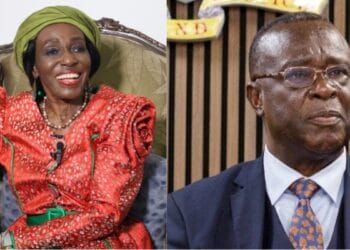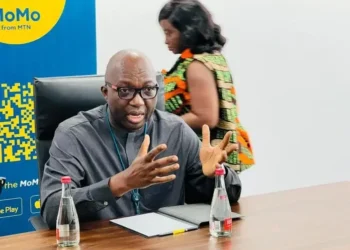Accra, Oct. 24, GNA. Nana Oye Bampoe Addo, a Deputy Chief of Staff, has called for Ghana‘s HIV response to be repositioned within a sustainable domestic financing framework to secure long-term health sovereignty and reduce dependence on external aid.
Speaking at the 14th National HIV and AIDS Partnership Forum in Accra, she said the shift was vital to achieving the national target of ending HIV as a public health threat by 2030.
“If we are truly committed and we want to ensure that HIV as a public health threat is ended by 2030, we must, as a matter of priority, reposition our national HIV response within a domestic financing framework,” she said.
Madam Addo emphasised that the new framework must embody self-reliance, efficiency, equity, consistency, and innovation. She urged government agencies, civil society, the private sector, and traditional authorities to strengthen collaboration and align priorities toward achieving national health independence.
“If we are to end AIDS by 2030, we must prioritise prevention, repurpose our budgets, harness innovation, and unlock domestic capital through good governance and partnership discipline,” she said.
She encouraged private pharmaceutical companies and researchers to make advanced tools and innovations available to strengthen the country’s HIV response, while traditional and community leaders promote responsible behaviour and fight stigma.
Follow The Ghanaian Standard channel on WhatsApp for the latest news stories from Ghana.
“Ending HIV AIDS in Ghana should be funded by Ghanaians and lovers of Ghana, should be addressed by systems, resilient systems built by Ghanaians for the protection of all Ghanaians… We do not wait for support, we build the support,” she stressed.
Madam Addo noted that donor interest in HIV interventions had declined sharply since Ghana’s first case in 1986, making local resource mobilisation and innovation increasingly critical.
Citing data from the Ghana AIDS Commission, she said more than 334,000 Ghanaians were currently living with HIV, 68 per cent of whom are women. In 2024 alone, 12,614 people died of HIV or AIDS-related illnesses.
She revealed that the abrupt withdrawal of a $78 million USAID health support package had exposed the risks of overreliance on donor funding.
Madam Addo commended ongoing government programmes such as the National HIV Response Sustainability Roadmap, the upcoming Free Primary Healthcare Initiative (set for launch in January 2026), and the Ghana Medical Trust (Mahama Cares Initiative), which aim to enhance access to healthcare for persons living with HIV.
She said these efforts were consistent with President John Dramani Mahama‘s Reset Agenda to build a self-sustaining, data-driven, and resilient national health system.
Dr Kharmercelle Prosper Akanbong, Acting Director-General of the Ghana AIDS Commission, said the forum provided a vital platform for accountability, coordination, and shared action in Ghana’s HIV response.
He cited progress since the last forum, including the launch of the National HIV Response Sustainability Roadmap, Cabinet approval of the revised National HIV and Wellness Policy, and the formulation of a new National HIV/TB-Related Human Rights Strategic Plan.
However, Dr Akanbong cautioned that the National HIV and AIDS Fund was yet to receive domestic seed funding, leaving significant financial gaps that threaten the sustainability of Ghana’s HIV response.
He called for stronger partnerships, increased local production of HIV commodities, and intensified education campaigns to eliminate stigma and discrimination.
Representatives from UNESCO, the Global Fund, NAP+ Ghana, and the Ghana Employers Association also commended Ghana’s progress and pledged continued support for the country’s commitment to ending HIV/AIDS by 2030.





























